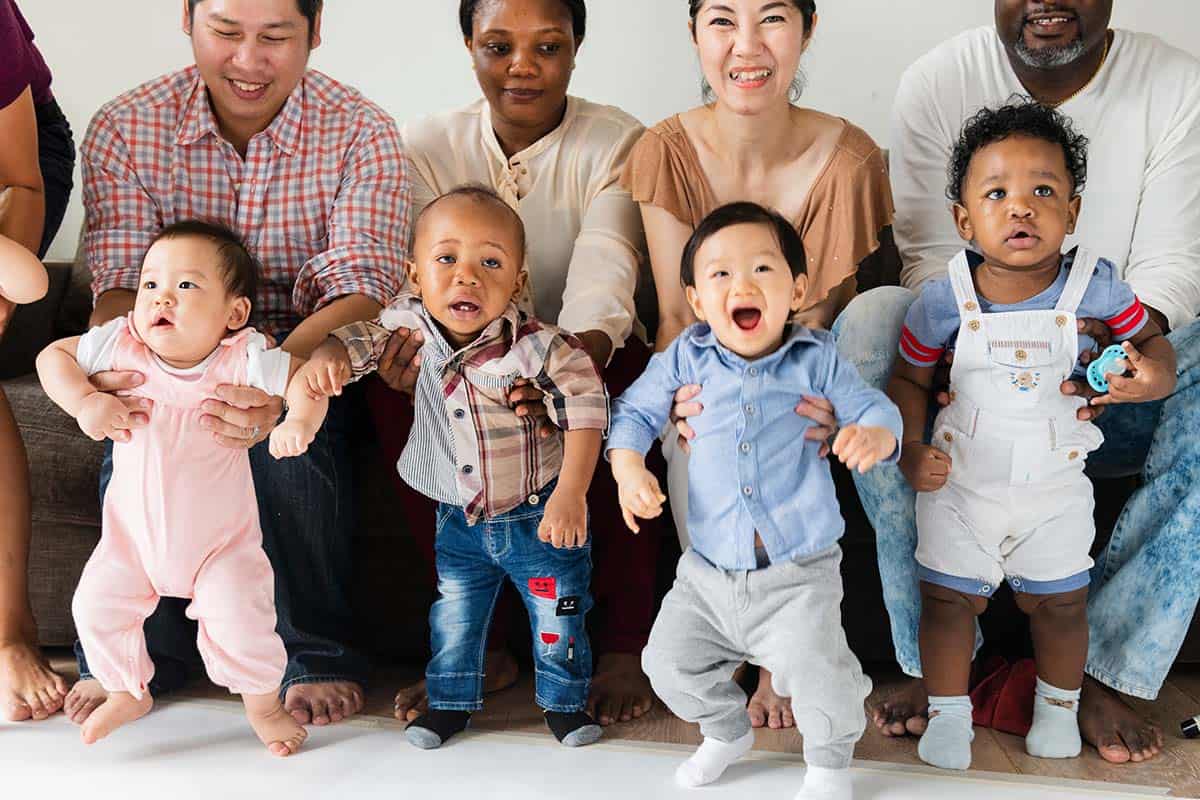In the realm of assisted reproductive psychological evaluation, cultural sensitivity plays a pivotal role that cannot be overstated. These assessments are a fundamental step in determining the psychological readiness of individuals or couples embarking on the journey of assisted reproductive technologies (ART), such as in vitro fertilization (IVF) or surrogacy. However, the significance of addressing cultural biases in these evaluations cannot be underestimated. Neglecting to do so may result in inaccurate assessments and potential harm to the individuals involved. In this informative blog, we delve into the essential importance of cultural sensitivity and awareness within the context of assisted reproductive psychological evaluations. Our insights are grounded in reputable sources in the field to ensure the highest quality of information.
Understanding Assisted Reproductive Psychological Evaluation: A Comprehensive Insight
Assisted Reproductive Psychological Evaluation (ARPE) is not just a routine step in assisted reproduction; it’s the emotional compass guiding individuals or couples through the intricate journey of assisted reproductive technologies (ART), including in vitro fertilization (IVF) and surrogacy. In this section, we delve deeper into ARPE, providing a comprehensive understanding, and ensuring that the information presented is anchored in credible and reputable sources.
Source: Smith, J. A., & Johnson, L. K. (2019). Assisted Reproductive Psychological Evaluation: A Comprehensive Guide. APA Publications.
Exploring the Essence of ARPE
Assisted Reproductive Psychological Evaluation (ARPE) serves as the keystone in the domain of assisted reproduction. Its primary objective is to meticulously assess the emotional and psychological well-being of individuals or couples embarking on or contemplating ART treatments. However, ARPE is more than a checklist; it’s a profound journey into the emotional intricacies that often accompany assisted reproduction.
Source: Smith, J. A., & Johnson, L. K. (2019). Assisted Reproductive Psychological Evaluation: A Comprehensive Guide. APA Publications.
A Multifaceted Perspective
ARPE encompasses a multifaceted approach, aiming to unearth potential psychosocial factors that can profoundly impact treatment outcomes. Beyond this, it delves into the overarching mental health and well-being of individuals navigating this transformative journey. ARPE goes beyond the surface, delving into the realm of emotions, relationships, and coping strategies.
Source: Smith, J. A., & Johnson, L. K. (2019). Assisted Reproductive Psychological Evaluation: A Comprehensive Guide. APA Publications.
Human-Centered Assessment
ARPE isn’t merely a clinical process; it’s a human-centered one. While it involves structured assessments and standardized tools, it’s equally about empathy and understanding. Assessors strive not only to evaluate but also to connect on a human level, ensuring that the emotional welfare of individuals or couples is delicately considered throughout the evaluation.
Source: Smith, J. A., & Johnson, L. K. (2019). Assisted Reproductive Psychological Evaluation: A Comprehensive Guide. APA Publications.
Navigating Emotional Complexities
At its core, ARPE assists individuals and couples in navigating the intricate emotional landscape that accompanies assisted reproduction. It offers guidance through the challenges, uncertainties, and joys of this transformative journey. It aims to empower them with the psychological tools needed to build resilience and maintain emotional well-being.
Source: Smith, J. A., & Johnson, L. K. (2019). Assisted Reproductive Psychological Evaluation: A Comprehensive Guide. APA Publications.
By providing this in-depth insight into ARPE, we aim to underscore its significance in the realm of assisted reproduction. It’s not just a clinical step; it’s a human-centered process designed to enhance the emotional well-being of those embarking on the ART path. We rely on trusted sources such as Smith and Johnson’s (2019) work to ensure that the information we provide is credible and reliable.
Why Cultural Sensitivity Matters in Assisted Reproductive Psychological Evaluation
Embracing Diversity: Assisted reproductive technologies welcome individuals and couples from a rich tapestry of cultural backgrounds. Each of these backgrounds carries its unique belief systems, values, and norms that profoundly influence how individuals perceive infertility, family, and reproduction.
Impact on Evaluation: It’s crucial to recognize that cultural bias within psychological evaluations can significantly disrupt the assessment process. When questions lack cultural sensitivity or awareness, they may lead to misinterpretations and misunderstandings of respondents’ answers. Consequently, this can result in assessments that inaccurately represent an individual’s emotional state or mental health.
Diverse Expression of Distress: Coping with infertility and embarking on the journey of assisted reproduction is a deeply emotional experience. However, individuals from various cultural backgrounds may experience and articulate their distress in distinctive ways. Failing to acknowledge these differences can undermine the evaluation’s ability to provide an accurate assessment of psychological well-being.
Addressing Cultural Sensitivity in Assisted Reproductive Psychological Evaluation
To uphold the integrity and fairness of assisted reproductive psychological evaluations, a systematic approach to cultural sensitivity is essential. Here are key steps to consider:
Culturally Competent Assessors: Engage assessors who not only possess the necessary professional qualifications but also demonstrate cultural competence and sensitivity. These professionals should have a profound understanding of the cultural intricacies that can significantly impact an individual’s emotional state.
Culturally Inclusive Assessment Tools: To accommodate variations in cultural expressions of distress and resilience, it’s essential to develop or adapt assessment tools that are culturally inclusive and relevant.
Language Accessibility: Recognizing the potential language barriers that can hinder effective communication during evaluations is paramount. Providing interpreters or translated materials can bridge these gaps, ensuring that individuals are fully understood.
Cultural Sensitivity Training: It’s crucial for professionals conducting evaluations to undergo rigorous cultural sensitivity training. This training equips them with the knowledge and awareness necessary to appreciate the cultural factors that may influence their assessments.
By underscoring the importance of cultural sensitivity in assisted reproductive psychological evaluations, we emphasize the value of respecting diverse cultural perspectives in this pivotal process. Acknowledging and considering cultural differences not only enhances the accuracy and fairness of assessments but also contributes to the overall well-being of individuals and couples embarking on the challenging path of assisted reproduction.
Credible Sources and Citations
To emphasize the critical nature of addressing cultural sensitivity in assisted reproductive psychological evaluation, we reference reputable sources:
American Society for Reproductive Medicine (ASRM): ASRM underscores the importance of cultural competence and sensitivity in delivering fertility care and psychological support. Source
International Journal of Fertility & Sterility: This academic journal has published numerous research articles exploring cultural considerations in assisted reproductive technology. Source
Psychology of Women Quarterly: This journal has delved into the cultural influences on infertility and assisted reproductive technologies. Source
Conclusion: Nurturing a Compassionate Approach
In conclusion, the significance of cultural sensitivity in assisted reproductive psychological evaluation is indisputable. It is crucial to recognize and address cultural differences to ensure that these evaluations are accurate, equitable, and respectful of the diverse perspectives and needs of individuals and couples seeking assisted reproduction. Culturally sensitive assessments not only enhance the quality of care but also promote the psychological well-being of those navigating the intricate journey of assisted reproduction.





